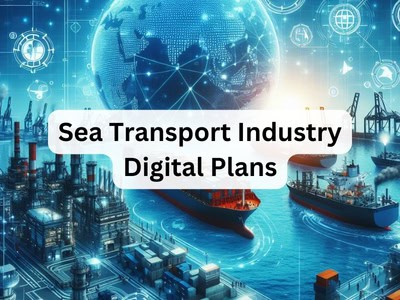This post is also available in:
![]() 简体中文 (Chinese (Simplified))
简体中文 (Chinese (Simplified))
Singapore’s Sea Transport Industry Digital Plans
 The Sea Transport Industry Digital Plans (IDP) was implemented along with ongoing efforts by the government to help small and medium enterprises (SMEs) adopt more digital technologies and encourage digital transformation.
The Sea Transport Industry Digital Plans (IDP) was implemented along with ongoing efforts by the government to help small and medium enterprises (SMEs) adopt more digital technologies and encourage digital transformation.
Sea Transport Industry IDPs Digital Roadmap
All IDPs contain a Digital Roadmap which covers three critical stages to help guide SMEs on utilising digital solutions and transforming themselves digitally. For the Sea Transport Industry, there are two IDPs, one for ship agencies and another for harbour crafts.
Digital Roadmap for Ship Agency
Stage 1: Getting the Digital Economy Ready
The first stage aims to help businesses get ready for the digital economy and lists the essential digital solutions that help provide better management for ship agencies.
Examples of such digital solutions include:
- Service booking portal
- Cargo operations
- Port call management
- Port disbursement
- Management reporting
Stage 2: Growing in the Digital Economy
The second stage provides digital solutions that enable SMEs to connect with the ecosystem for integrated insights.
Examples include
- Advanced ship agency management
- Ship agent training management (e-Learning platform)
Stage 3: Leaping Ahead
The third stage recognizes progressed computerized advances that SMEs can actualize to fortify their serious edge in the conveyance of their administrations.
Examples such advanced technologies include:
- Shipping blockchain ecosystem
- Drones for document delivery
Digital Roadmap for Harbour Craft
Stage 1: Getting the Digital Economy Ready
The first stage aims to help streamline operations and optimise resources.
Examples of such digital solutions include:
- Vessel management
- Order booking and deployment management
- Video surveillance and monitoring
Stage 2: Growing in the Digital Economy
The second stage provides digital solutions that enable SMEs to connect with the ecosystem for integrated insights.
Examples include
- e-Procurement
- Advanced vessel management
Stage 3: Leaping Ahead
The third stage identifies advanced digital technologies that provide autonomous operations and make business operations more intelligent.
Examples such advanced technologies include:
- Drones for maritime operations
- Autonomous piloting
Digital Roadmap for Skills and Training
As the Sea Transport Industry expands and progresses, the digital skills required to follow suit.
Job roles will likely require upskilling to keep up with digitalization, and it is best to prepare early by providing the relevant training.
IDPs outline two types of courses for basic and advanced users, respectively:
1. Basic Courses
These are required for all users as they cover essential foundations to improve digital literacy and awareness.
Examples of users in the Sea Transport Industry that require this include:
- Front desk operations
- Boarding officer
- Shipping clerk
2. Advanced Courses
These are recommended for users who want to attain high proficiency in digital skills.
Examples of advanced users who require this are:
- Ship agency manager
- Habour pilot
- Technician
Additional Support
SMEs are also provided with additional help through primary advisory or specialist consultancy services through SME Centres and SME Digital Tech Hubs. Resources available include self-assessment checklists for digital readiness, consultation to provide digital advisory or project management information, and more.



